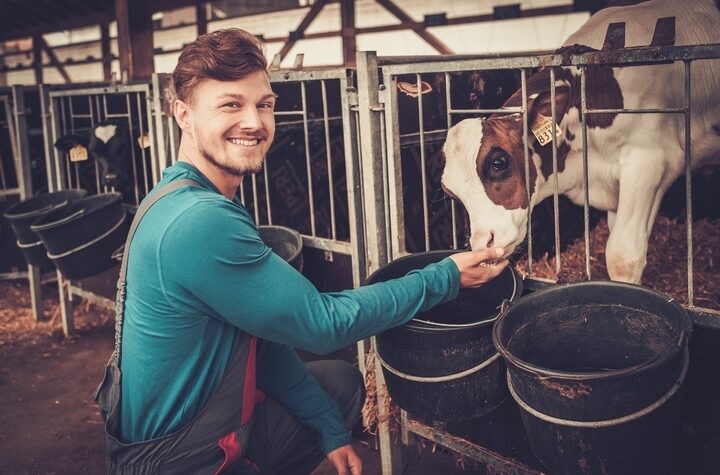What creates the most significant focal point in a small farm beside a well-designed barn? A barn is a structure mainly located around or near a farm and used for storing animal feeds, products, and related equipment. Constructing a barn on a small farm can be challenging due to the limited space.
While there’s no wrong or right way of constructing a small farm barn, the below ideas can substantially help if you adhere to them. The good thing is that you can get plenty of small barn design ideas online to help you settle for the best. Remember to go professional for the best results.
Here are seven practical barn ideas for a small farm:
Idea #1: Focus on Construction Design
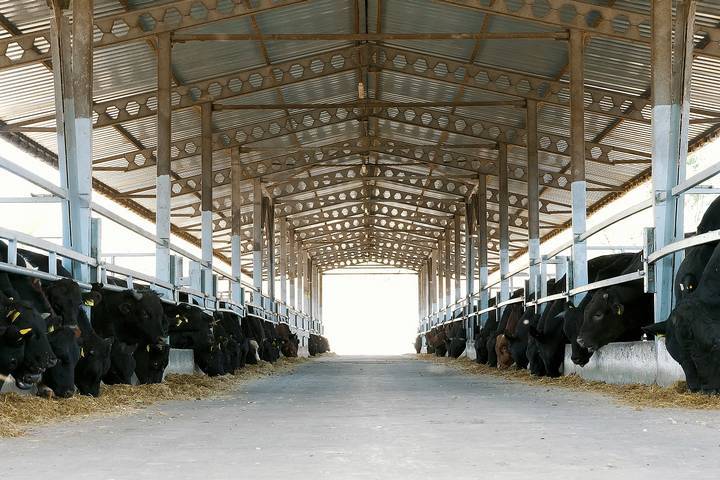
How you intend to use your barn on a small farm significantly influences the construction design. For instance, if you plan to store harvesting machinery in your barn or blend in some livestock, you should evaluate the needs critically to construct an adequate space.
In a nutshell, your barn should project every need you might have for the farm. When you aren’t sure of how to incorporate your farm needs into barn construction, you can always engage some experienced local farmers or veterinarians for more outstanding outcomes.
Idea #2: Don’t Forget the Barn Exhaust Fan

If there’s a thing you can never neglect when thinking of a barn is ventilation. Small-scale farmers might often construct barns with little or no ventilation due to the limited space. The move is highly discouraged as animals, animal feeds, products, and machinery require maximum ventilation when stored inside the barn.
A barn exhaust fan is an excellent idea for small-scale farmers as it purifies the air, regulates heat, and prevents moisture from developing within the structure. The fans are mainly situated on the walls or roofs and are available in different sizes, depending on the size of the barn.
Thanks to the developing technology, farmers can now find electricity-powered exhaust fans for their barns, unlike previously, when only wind and solar-powered ones were popular.
Idea #3: Choose the Right Location
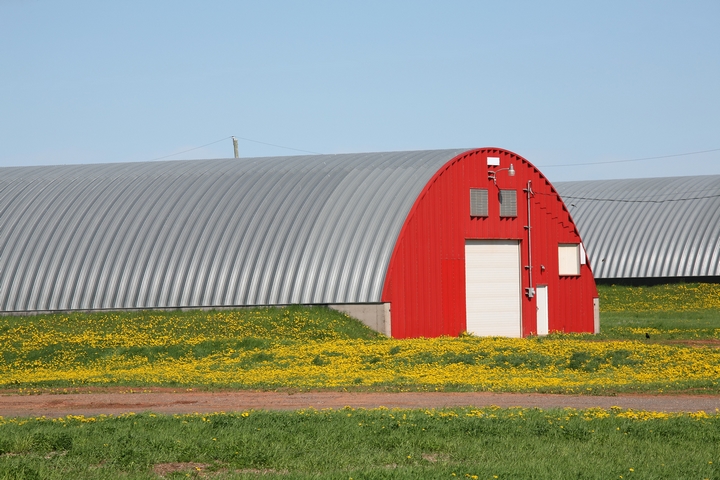
One of the mistakes that most small farm owners make when constructing barns is the location. Having a small farm shouldn’t let you settle on centrally located barns while neglecting all the other potential areas.
Some crucial factors small-scale farmers should consider when choosing a site for their barns include accessibility, view from the rest of the property, privacy, and drainage. For instance, if your barn lacks good drainage, you will likely suffer from constant clogs and complexity in eliminating animal waste and other dirt.
It would be best if you partnered with a relevant professional in choosing the location of your barn for more effective results.
Idea #4: Be Keen On the Materials
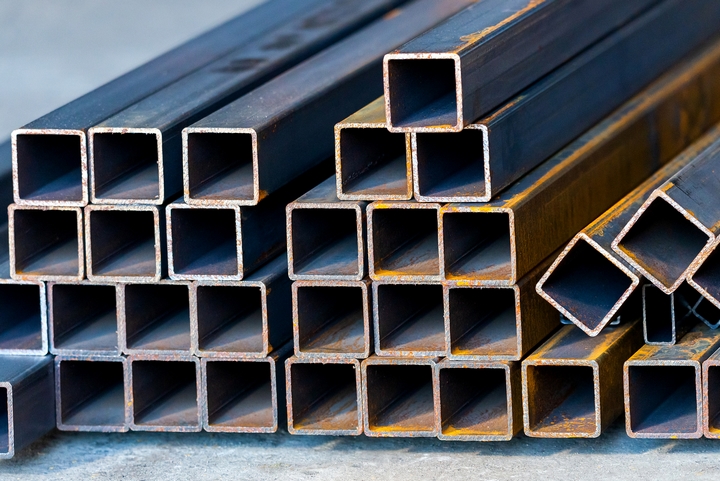
Since space is the major limiting factor in a small farm, farmers should be keen when choosing the material for constructing the barn. Every barn material has its positive and negative influence on a small farm. Several professionals have highly recommended wood barns for small farms thanks to their comfortability, a touch of nature, and effect on climate control.
For instance, wooden barns can effortlessly absorb and release moisture within the structure, allowing free air circulation instead of metallic counterparts. On the other side, metallic barns are relatively affordable, fireproof, and have an extended lifespan. The choice is yours!
Idea #5: Factor in the Colour
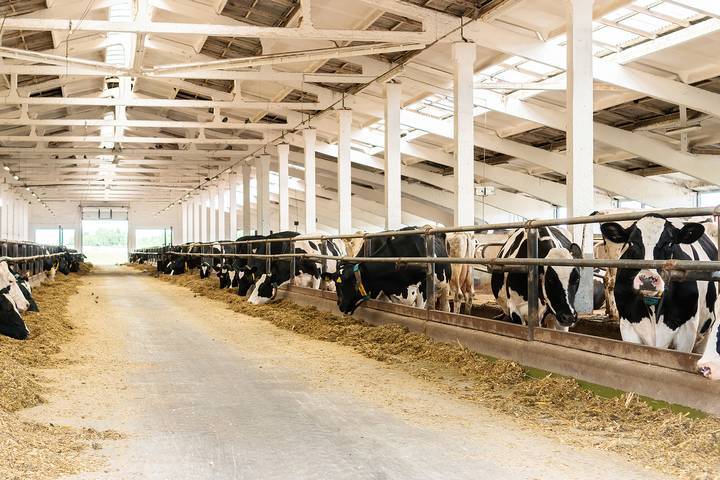
The colour of your barn matters substantially even with a small farm, especially for farmers who already have one or two more barns. Being a small space, any mismatching or clashes might ruin the appearance and make your farm less appealing. Therefore, matching or embracing similar shades for your barns (if you have several) for their appearance is advisable.
Farmers constructing their first-time barn should at least blend in with the surroundings, more so by considering the concrete structures in the exterior. However, a traditional-looking barn has always been a life-saver to all farmers regardless of size, location, or type.
Idea #6: Allow Maximum Lighting
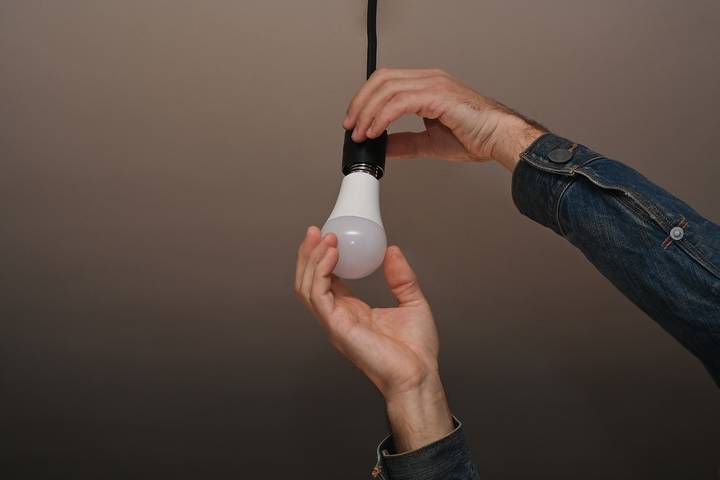
Another beneficial idea for constructing a barn on a small farm is allowing maximum lighting. Alongside enhancing security within and around the barn by preventing theft, adequate lighting also makes it easier for farmers to manoeuvre across the structure in the dark hours efficiently.
For instance, if you’re a 24/7 supplier of eggs, you can access the barn anytime, boosting your productivity and sales level. You can maximize lighting in your small farm barns by using translucent barn curtains or roofing and installing high-quality, robust artificial lights.
Idea #7: Consult an Expert

In every field of life, you will always find someone with more knowledge than you- the experts. It would help if you approached these people when you wished to construct a barn for your small farm to grasp some tips you might not have known earlier.
A professional can guide you with all the above ideas to ensure you achieve the best out of your small farm barn. The idea that ‘‘it’s a small farm barn, I can work on it all alone might not be advisable, especially for commercial farmers.

